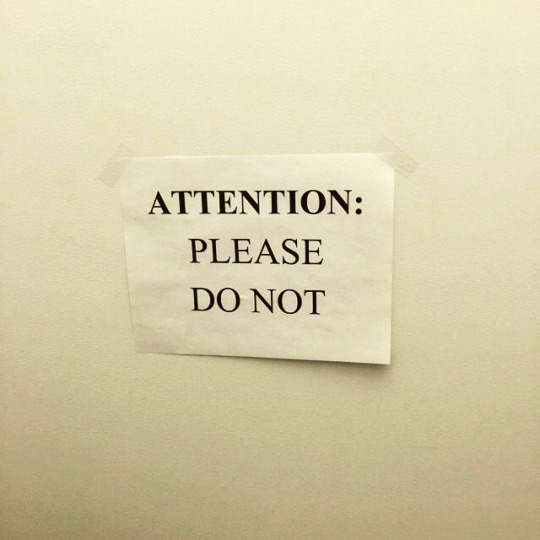Text
can’t remember when i posted this but goodness, still true.
honestly my desire to remain on planet earth rn is so close to zero it is incredible
7 notes
·
View notes
Text
In Trump v. Hawaii, Roberts wrote that Korematsu was wrong the day it was decided and has been overruled in the “court of history.” He missed the point. The problem with relying on history is the vast number of people who have to suffer in the present.
The constitution isn’t some beautiful guarantee of social rights. But it’s all we have. Liberals have tried to stretch it to fit our ideals, and conservatives have tried to shrink it, expecting something else to fill the void. But the only thing in that void is the kind of cruelty that Trump wants to bring back—the “other” in cages and resettlement camps.
Today is the day that Justice Kennedy--never a liberal, don’t you forget it--resigned from the court to make way for deeper, further right-wing jurists. This, after a slap-on-the-wrist concurrence in Trump v. Hawaii. It is a very dark, bleak day. The Supreme Court is more partisan than it ever was, and a right wing court will be devastating as it begins to hear cases that critically engage with the composition of our democracy, minority rights, protections for criminal defendants, and appropriate ways of policing.
I wish I had something beautiful to say about hope and strength and perseverance. All my words today are tied up in stories about suffering.
#i am so deeply depressed today#every day gets so much harder#the sheer cruelty of the GOP is staggering#'how many rights can we take away today;#politics#today is the second worst day ever.#trump was only ever going to be four or eight years#his nominees will sit on the court for decades#they will shape law and policy for generations#they will strip away the protections we have so tenuously begun to claw back#for women for minorities for immigrants for workers for criminal defendants#a friend texted me the news before i even got the nytimes breaking news alert#i shut my door at work and proceeded to spiral out of control.#hope feels like the most impossible thing right now#i am reminded of the days post 2016 when i wandered around with red rimmed eyes for days feeling hollow and numb#and so angry at myself that all i could think about was shitty self pity
5 notes
·
View notes
Quote
We must always take sides. Neutrality helps the oppressor, never the victim. Silence encourages the tormentor, never the tormented.
After 87 courageous years on this earth, Holocaust survivor and Nobel Peace Prize laureate Elie Wiesel (September 30, 1928–July 2, 2016) has left us — and left us his timeless, increasingly timely wisdom on our shared responsibility in ending injustice.
(via calcifart)
#elie wiesel#zichrono l'vracha#may you find the peace that this world never gave you#so upsetting to hear.
88K notes
·
View notes
Text
Male Stoicism is backed up by an incredible amount of emotional labor from women
Like men are able to get away with never expressing of requesting help with their feelings because women are trained from a very young age to observe men, watch for signs of emotional need and environmental stressors and deal with them without being asked. It’s why women worry constantly about emasculating the men in their lives but men never worry about “efeminating” the women in their lives.
Men are “stoic” only because they don’t have to communicate in order to get their emotional needs met.
18K notes
·
View notes
Quote
It ends or it doesn’t. That’s what you say. That’s how you get through it. The tunnel, the night, the pain, the love. It ends or it doesn’t. If the sun never comes up, you find a way to live without it. If they don’t come back, you sleep in the middle of the bed, learn how to make enough coffee for yourself alone.
Adapt. Adjust. It ends or it doesn’t. It ends or it doesn’t. We do not perish.
Caitlyn Siehl (via lotsofpinkplaid)
#A primer on how to get through life: it ends or it doesn't end#and you live with either option#you live and live and live and live through it#and along the way hopefully you learn
31K notes
·
View notes
Quote
Once upon a time in the 1980s, when I was a twenty-year-old graduate student full of arrogance and attitude, I worked in the Hebrew books and manuscripts division of the Judaica Department at Sotheby’s New York. My boss was the “Judaica expert,” the late, great Jay Weinstein, a man truly deserving of his title, which he bore with immense modesty and humour. My own title was also “expert” but, by way of contrast, it only exacerbated my supercilious arrogance when I found myself called to the front desk to meet a client… The client I was about to meet on the day I am describing had called a week before to tell me that he was in possession of “a very old Hebrew book.” I was not looking forward to the encounter, since auction experts know very well that the hoi polloi consider anything more than ten years old to be ancient and hence of untold value. Disabusing clients of this notion as it applies to their particular treasure is an often painful but necessary task…
Mr. X, I was dismayed to find, embodied all my worst fears. Stooped, elderly, still in his coat, and eager — very eager. Authoritative and disdainful though I made myself, he was simply unimpressed by my “impressiveness.” With total focus and trembling hands, he reached into a plastic shopping bag and produced, wrapped in newspaper older than I was, his “treasure” — a book of Psalms, printed in Warsaw in 1920. I couldn’t believe this monumental waste of my precious time — a brand new book of Psalms would be worth more than this! I was exasperated by this schlepper, and I wanted to tell him so. I wanted to show him the real treasures — gold, silver, ancient, and precious illuminated manuscripts — that had been entrusted into my “expert” care. I wanted to show him the door as I told him with authoritative disdain, “That book is worth whatever you paid for it!”
But at that moment, like the angel in the legend who moves Moses’ hand toward the glowing coal rather than the glittering crown, thus saving his life, some kindly spirit moved my tongue. And instead of that anticipated send-off, I faltered, “Um, what did you pay for this?” The old man drew himself up to his full 5 feet, 2 inches. “For this, I paid seven days’ Auschwitz bread,” he replied with a dignity that totally deflated my pose. It seems that the Nazis had caught him with the little Psalm book, and as a penalty for possessing it, imprisoned him without food — only water to drink — for an entire week. Like Moses touching the coal to his lips, I was struck dumb. “This,” I stammered, “is too valuable for us to sell.” And I stumbled out of the room, a changed young man, with a new appreciation of what is meant by the words precious, valuable, and treasured.
Marc Michael Epstein, Skies of Parchment, Seas of Ink: Jewish Illuminated Manuscripts (via jewishhenna)
5K notes
·
View notes
Photo







118K notes
·
View notes
Note
also why do you keep KFP but not K in general?
i’d wager that a sizable portion, if not the majority, of jews try to stay k for p.
also fast on yom kippur despite never going to shul throughout the rest of the year. i might as well do the minimum of religious observance, and the dietary restrictions for passover and yom kippur are the easiest rituals to fulfill. i’d also bet that a large number of catholics or muslims have similar stances to lent or ramadan, even if they’re not particularly religious the rest of the year.
does it surprise you that “secular” jews actually observe some rituals?
#a note for perspective#thank you for explaining this! i like hearing how other people approach observance#especially since i find myself interacting with people with fairly 'standard' sets of perspectives on these things!#thank you thank you all.#i am not sure i understand the speeding car killing metaphor but what it boils down to for me is:#passover is about professing how you belonged to a nation that was enslaved#and is now free.#it is a social mandate: you must consider yourself as someone who was taken out of egypt#it is a requirement to find yourself situated in the history of the jewish people#to identify yourself as a link in the chain of jews that stretches back until the very beginning of our story#to not keep kosher for passover--to not keep passover at all really--is more than a rejection of kashrut#it's a rejection of the story of the exodus in a sense#and honestly everyone should observe whatever they want however they want#this little goat isn't telling anyone how to live their life!!!!! but.#it's the most internally consistent thing in the world#:))))
69 notes
·
View notes
Conversation
day one of passover: gosh what a nice holiday :) fun traditions :) freedom from oppression :) wine :)
day six of passover: i will literally physically fight every single human i see eating a bagel today
#day seven: i don't know what bread even tastes like anymore#i just. i don't know.#my little haggadah#pesach
1K notes
·
View notes
Photo

Looking to sell this goat. It’s only little, so asking price is 2 zuzim ONO.
710 notes
·
View notes
Text
one of the most fascinating parts of the passover seder—one of the most eminently quotable, as well—is the narrative requirement that you envision yourself as someone who was taken out of slavery. in many ways, this is a call to action, to social justice: we are tasked with remembering the oppression of our people, and we must look around the world and see the oppression of others. we may not close your eyes and enjoy the victory of freedom: we must mix celebration with sorrow, taking wine out of our goblets with our fingers when we remember the plagues wrecked on the egyptians. this requirement shapes many sedarim all over the world, and i think it allows us to emerge as better people from the eight days of passover, hungry for the thick lushness of bread, for complicated meals and flavors and tastes. for the simplicity and comfort of routine.
but this requirement and call to action is not the only part of the passover seder that instills us with the promise of change. and while a lot of people—including myself—like focusing on the mandate to justice almost exclusively, this year i’ve found myself thinking much more about the happily ever after, about the gift of the ten commandments, the burden of freedom, and that elusive land of milk and honey. this year, for a number of extremely personal and emotional reasons, i’ve been thinking about the way passover is a promise of the future, not just a mandate of the past. the way passover creates a template, tabla rasa, for the year to come. the way it’s a beginning, the way it instills hope, and the way it creates structure for the year to come.
this year i’ve been thinking a lot about after. not just about dayenu (”it would have been enough,” we say, noting our liberation from slavery, our release into the desert, the gift of the torah, the gift of god’s presence), but also about the moment moshe looks over into the land of israel, forward and onward and into the future. the moment the children of israel cross into the land, the moment they put down roots and call themselves tribes of judah, reuven, binyamin. the moment they find names for themselves, find homes, find places where they can plant crops and expect to see them sprout. the moment we, as a wandering, placeless people, put down roots. the moment we become more than a faith–the moment we become a people. the moment we stop worrying about yesterday and today; the moment we can start worrying about tomorrow.
i’ve been thinking a lot about that moment. the apex of self-definition, of coming together, of community and of promise. not because it’s the end of the story, barely mentioned in the haggadah. but because it’s the beginning of the story, in a sense. it’s the moment we put down our history books, sweep away the remnants of food and wine, and talk to one another. it’s the moment we stop remembering, and it’s the moment we make plans. what will we do tomorrow? when do you think we’ll wake up? what time is it–do you think our seder was longer or shorter than anyone else’s? it’s the moment that i remember that my father is one of a few hundred heads of my family who have worn a kittel and stood at the front of our table and said we were slaves and now we are free with a voice that is terribly scratchy and getting older and fainter every year. one day i will stand at the head of that table with my partner, and it will be me making that proclamation of faith. i will be the next in the line of jews who celebrate, commemorate, and then continue.
the seder gives us the gift of reflection. it’s a memorial. it’s a lesson. but sometimes i think it’s more than that–it’s the promise that even in the darkest of times, even in the bleakest of moments, there is always an after. there is a the bed that awaits us after the seder, after we put away our plates and glasses and trudge into bedrooms cool, dark, and welcoming. after the matzah crumbs have been swept off the table, after our stomachs are heavy and our hearts are light with wine and wonder. there is a later. there are eight days of dusty crumbling meals, eight days of regret, eight days of difficulty. eight days where we are reminded of the lowest points in our history–of those people who are still at their lowest points. the mandate of social justice, the call to action, the requirement to see suffering and to address it.
but then there is the ninth day. there is the tenth day. there is the week after, the month after. there is the opportunity to begin again, to look at the body of law handed to us in the vast, empty expanse of desert, and say i will, i can, i must. it is the promise of an unbroken chain, of thousands of years of judaism stretching in every temporal direction. it is the memory that wherever you go, the roots of your story will follow you. you are not alone, and you will never be alone.
this promise of tomorrow is especially meaningful to me. i’ve been thinking a lot about freedom blessed by the constraint of law and by the necessity of compromise. i’ve been thinking a lot about the future. both of these things sound difficult and terrifying sometimes–unbearably overwhelming, unacceptably heavy burdens. but lately i’ve also been thinking about the opportunity of the seder to impose order on all of this chaos–on the chance i will have to set aside a short period of time to reflect, to mourn, to dedicate myself to grounding my story in memory. and then i will be given the imperative of thinking about the future, about tomorrow, and about the promise given to the am, to my people.
my grandfather once told me that jewish history is the promise of thousands of stars that was given to avraham. everything else is a consequence. he never told me that being jewish meant that you will never, ever be alone. you will never be just history. you will always have tomorrow.
now i think he never said this because he knew he didn’t need to. because he knew, one day, i’d figure it out.
#passover#my text#my little haggadah#sorry for typos! dashed this off on my phone.#i hope you all had one last great bagel!#and that you have a meaningful holiday in any way you choose to commemorate it#i wrote a slightly different version of this story into a facebook message earlier this morning#and to the person who is reading this twice: thank you.#this little goat is out of words.#thank you. may we always have tomorrow.#(silly thoughts for a silly person who is silly and exhausted!)
181 notes
·
View notes
Text
Fantasy story where kids looking for the afikomen accidentally wander through a portal to another universe and have to find it to get back to the seder.
#reblogging this because !!! it is almost pesach and all i need in life are stories about magical jews#(and a little dose of happiness!!! this little goat is a little sad about pesach this time around.)#:))))))) thank you counterpunches for always saving my tags#my little haggadah
696 notes
·
View notes
Photo






Songs were sung—mostly off pitch—passages were read, wine was drunk, and there was food.
The Editors’ Passover Menu via Food52
#clean houses and family gatherings and far too much matzah#long stories over bright white tablecloths and china used exactly twice a year#a holiday of history of storytelling of promise and prescription#i love all the thinky-passover posts! thoughts on galut on the splitting of the sea#on miriyam and her music and a nation and their faith#on the narrative of slavery and the weight of freedom#we are a nation of social responsibility. may your sedarim reflect that!#my little haggadah
456 notes
·
View notes
Photo

#the only feeling i ever have and will ever need#printing out fifty copies to hand out whenever anyone tries to talk to me t b h.
50K notes
·
View notes
Photo

this is like a million times better than american apparel’s holocaust pajama pants but that’s a really low bar to be aiming for, H&M.
#lmao i literally can't#do they not employ jews#did no one look at this and for thirty seconds go#'wow did we really base a scarf design off a fairly religious jewish object associated with prayer'#'hmm perhaps we may want to rethink our strategy here'#amazing !!!#just call it a talit for goodness sake#they even KNOTTED the FRINGES#'does it come in a techelet version' has been the best social media response thus far
14 notes
·
View notes
Text
honestly my desire to remain on planet earth rn is so close to zero it is incredible
#pls invent a rocket and send me to mars#i would like mars#i mean DOWNSIDE no wifi but UPSIDE no humanity so#i think i could deal.
7 notes
·
View notes
Quote
There are very few of us Jews in the world. We neither caused the world’s problems nor hold the answers. So if we’re not central to whichever issue of the day—and typically, we’re not—maybe consider leaving us, as an entity, out of it.
The Problem with Comparing Syrian and Jewish Refugees by PHOEBE MALTZ BOVY
(via bitrei-zuzei)
#reblogging this because honestly.#do i have to tattoo this on my forehead or something?????#i am not. your. rhetorical. device.#tell me anti-semitism doesn't exist#no please tell me#tell me so i can realize that you don't give a shit about Actual Jews with Actual Problems
189 notes
·
View notes